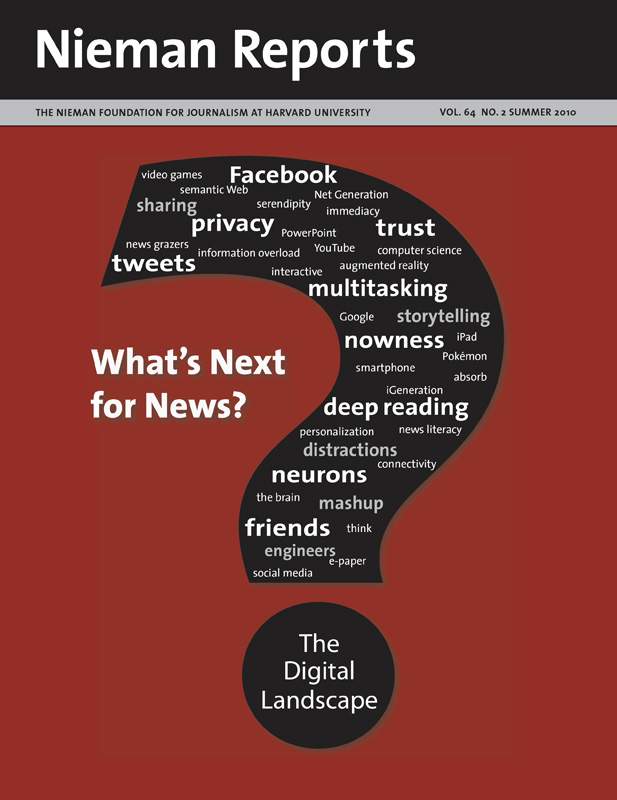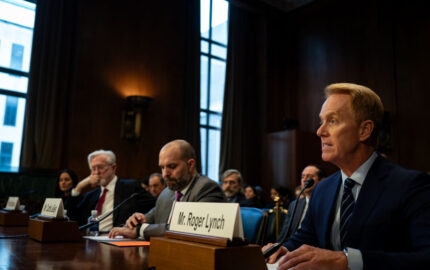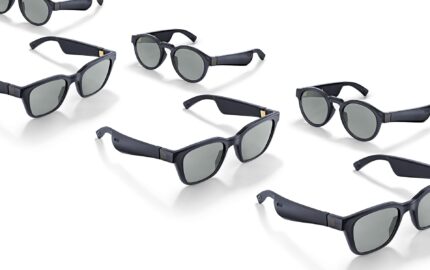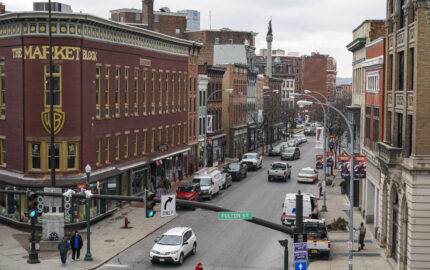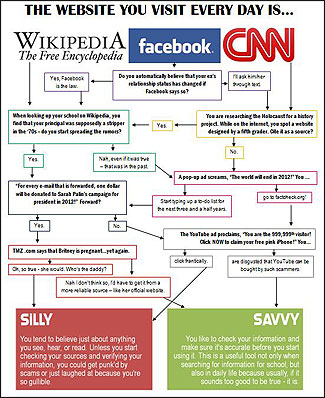 <
<Lucy Chen created a quiz to test critical thinking skills learned in the News Literacy Project. Click to enlarge »
RELATED ARTICLE
"News Literacy Project: Students Figure Out What News and Information to Trust"
- Alan C. MillerIn the spring of 2009, as I was daydreaming about warm weather and the smacking of flip-flops on the boardwalk, I was jolted back into reality by the start of a new unit in my Advanced Placement U.S. government class—the News Literacy Project. My teacher promised that it would be interesting and entertaining. I doubted him.
I was wrong; it was fun and fascinating. We learned a lot about topics such as the importance of accurate news reporting, the implications of the First Amendment’s protection of free speech for journalists and ordinary citizens, guidelines for finding trustworthy information, and the challenges of living in a digital world. It was almost easy to pay attention because the lessons directly related to my life, my decisions, and my observations of the world around me.
Journalists came to speak with us, and they reinforced our learning by relating what we were studying to their own careers. Instead of reading a worksheet, we heard from Mark Halperin, a book author and political analyst for Time, who gave us examples of how the First Amendment has protected his work. Pierre Thomas from ABC News responded to our questions about the daily responsibilities and tasks of journalists. Thomas Frank of USA Today showed us how he uses primary source documents in reporting.
Interacting with these journalists changed how I view the process of gathering information. Now I appreciate a lot more the hard work that goes into digging for news. These speakers described the responsibility they have to report the facts accurately and objectively, a task that is much more difficult than I thought it was. Sometimes people won’t talk to reporters. At other times, figuring out exactly what happened turns out to be quite complicated. But a journalist’s job is to find the information they need, decipher it, and convey a story coherently.
Occasionally, I had watched the evening news with my parents and read the newspaper, but I never fully realized the impact that news had on my daily life. And studying news literacy taught me how to gather and assess my own stream of information, whether it comes from a newspaper, a TV show, or the Internet.
Throughout this process, I grew more skeptical about the facts I read or hear, especially those I find online, where anyone can post information about anything. The guidelines presented in the unit helped me determine whether a source was accurate and reliable—and knowing this made me better at selecting information in an ever-widening sea of sources. More student projects from the News Literacy Project are showcased in the video “Students as Teachers.”
For my final project, I created a fun quiz that asked several questions based on critical thinking skills I had learned. The questions I used are ones I felt would help to judge a person’s ability to select credible sources and reliable information, especially on popular Web sites that my peers visit frequently. One key aspect of my project is using common sense and not taking every fact online for granted. If something sounds too good to be true or if it sounds fake—it probably is. Based on the answers chosen, the quiz taker would be described as either a “silly” or “savvy” news consumer.
In addition to expanding my interest in journalism, the News Literacy Project taught me lessons that are proving to be useful in my English class, my interactions with people, and my daily newsgathering. And I knew they would be helpful in my first job. In fact, they already are. This spring I joined the staff of our high school paper.
Lucy Chen will be a junior at Walt Whitman High School in Bethesda, Maryland. She works on the school paper, The Black & White. Videos about her project and those of other students are online at YouTube.
